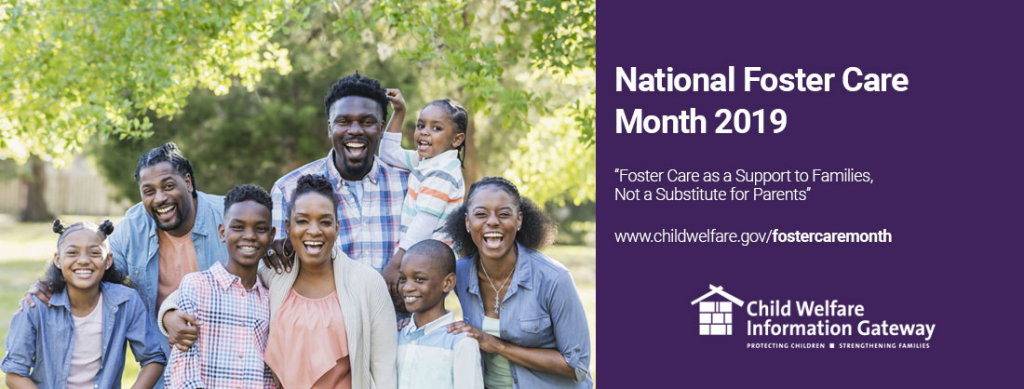Foster Care as a Support to Families, Not a Substitute for Parents
Adoption, and the larger work of caring for vulnerable children, takes shape in a variety of ways. There’s domestic infant adoption — the type of adoption that American Adoptions specializes in. There’s also international adoption, which many couples find to be the best route to build their family. In the U.S., many folks would make the case that most pressing need is in the realm of foster care.
The foster care system is overwhelmed in cities across the country. It has been called a crisis, and some of the resulting treatment of children in states with struggling systems is difficult to read. This is a serious issue, because the foster care system has the potential to be a source of stability and hope for thousands of children. It is a vital community resource that provides security and opportunity. It’s also largely misunderstood.
This month is National Foster Care Month. Even though American Adoptions does not work directly in the foster care system, we believe in its importance and want to support it however we can. That’s why we’re taking part in this year’s National Foster Care Month. The more people who understand the system and know about the issues, the better chance there is for children to benefit from foster care.
What is Foster Care?
Foster care essentially replaced the outdated and unhealthy private orphanage system that was set up for several decades in the United States. This system is national, but it is managed at the state and local levels. This does two things: allows local managers to create a system to meet the needs of their community, which is good, and creates a disparity in quality between states, which is not good. In some areas, the foster care system is not in crisis. In others, it is. It all depends on where you are.
Unlike orphanages, which are often depicted in movies, TV shows and other mediums as a place where desperate mothers leave their children on a door step, the foster care system is a last-resort with a different goal. Children are placed in the foster care system when their life at home is deemed unsafe. This does not mean a child needs to be adopted. Rather, a plan is put in place to reunite the child and the birth family after a series of steps have been taken by the birth parents to rectify the situation.
That’s what many people don’t quite understand about the foster care system. Adoption is not the outcome for the vast majority of children. Rather, it is reunification with their family of origin. This year’s theme for National Foster Care Month is “Foster Care as a Support for Families, Not a Substitute for Parents.” The goal is to educate and enlighten the public to the primary goal of the system as it benefits children and families.
Foster Care as a Support to Families
Let’s dig deeper into this year’s theme. As stated, the first goal for most children in foster care is reunification with their family of origin. Studies have found that finding permanency in a timely manner is vital to healthy development in children. This means, ideally, a child would find his or her way back into a long-term, healthy family situation as quickly as possible.
An important factor in making this happen is foster families and professionals who view themselves primarily as a support to birth parents. Foster-to-adopt is a wonderful route for many families. However, this National Foster Care Month is shining the spotlight on a need for families who view themselves as helpers rather than future parents.
As Jerry Milner, Associate Commissioner at the Children’s Bureau, puts it:
“To give families involved with foster care a fighting chance, we need to consider seriously recruiting foster parents who see their primary job as supporting and mentoring the birth family in addition to ensuring that children have a safe and nurturing place to live.”
What Can You Do to Support National Foster Care Month?
It takes a strong family with big hearts to be the type of foster parent described above. To have an emotional, financial investment in a child while maintaining the understanding that your role is temporary takes real maturity and self-determination. But it is this type of parent that the foster care system desperately needs.
If you know that you aren’t that person, but you still want to do something, there are several ways you can support your local foster care system.
- Share Stories: The Child Welfare Information Gateway has collected real-life stories that show the challenges and successes of foster care. Share these stories with your friends to increase awareness of foster care.
- Share Information: Get informed and then inform others. The foster care system can be a cornerstone of a community and a vital resource for children and families, but only if people know about it.
- Community Engagement: Foster care operates out of the local level, which means your community may have specific needs. Contact your local foster care agency and ask how you can help.
Every child deserves the love and protection of a family. The foster care system can help children who are missing this experience find permanency through family reunification. This National Foster Care Month, you can be a part of it.



